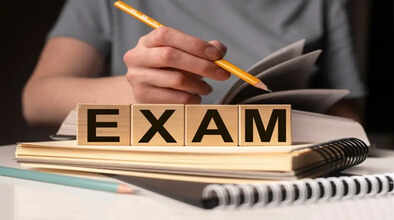IAS Officer: How to become an IAS officer without passing the UPSC exam? Note down the 3 most useful methods..

IAS Officer Without UPSC Exam: The Indian Administrative Service is one of the most prestigious government jobs in the country. IAS officers work as a bridge between the public and the policies, i.e., the government. Whether it is education or health, rural development or urban schemes, the decision of IAS officers matters a lot in every field. This is why every year, lakhs of youth dream of becoming IAS officers. For this, it is necessary to have a top rank in the UPSC Civil Services Examination.
The UPSC exam is one of the toughest competitive examinations in the world. Every year, 10-12 lakh youth apply for it. Such tough competition and a long journey of preparation make it challenging. The common belief is that becoming an IAS officer means passing the UPSC exam. Although the truth is that UPSC is definitely a major route, it is not the only way. There are also such provisions in the Indian Administrative System, through which one can get an IAS government job even without cracking UPSC.
Can one become an IAS officer without the UPSC exam?
The beauty of the democratic system is that in this, the administration has not been made dependent only on examination. UPSC is the means of mainstream, but apart from this, there are also options through which talented and experienced people can handle important responsibilities like IAS. The government believes that some people make extraordinary contributions in their respective fields (be it state services, scientific institutions, or areas related to policy-making). If such people come into a role like the IAS, then their experience can strengthen the administrative structure.
How to become an IAS officer without the UPSC exam?
Systems like promotion and lateral entry have been implemented to become an IAS officer. State Civil Services (PCS) officers can get promoted to the IAS cadre after proving their hard work and efficiency for years. At the same time, through lateral entry, the central government also gives experts and professionals an opportunity to use their expertise directly in administrative posts. Apart from this, in some rare circumstances, the government directly appoints an officer or expert to the IAS cadre for exceptional services.
How to get a promotion from the State Civil Services (PCS)?
The most common way to become an IAS officer without UPSC is the promotion of officers selected from the State Public Service Commission (State PSC). PCS officers work in the posts of sub-district magistrate, tehsildar, district-level officer, etc., in their respective states. PCS officers are promoted to IAS based on completion of about 15-20 years of service and excellent work performance. For this, approval of the Central Government, State Government, and Union Public Service Commission is necessary.
How to become an IAS through lateral entry?
The objective of the lateral entry scheme is that not only career bureaucrats, but also experts working in the private sector, academic world, and technical institutions should contribute to policy-making. Under lateral entry, qualified candidates are appointed to the posts of Director, Joint Secretary, or above. The persons selected for these posts are also given IAS-level responsibilities and rights. These appointments are made on a contractual basis for a limited period.
How are non-UPSC officers appointed in special circumstances?
In some very rare cases, the government also gives place in the IAS cadre to those persons who have made exceptional contributions in their field. This is called 'exceptional service appointment'. For example, if a defense services officer, scientist, or technical expert contributes a lot to the functioning and administration of the government, then he can be included in the IAS on the basis of a special recommendation. Such examples are few and this decision depends entirely on the discretion of the government.
Disclaimer: This content has been sourced and edited from News 18 hindi. While we have made modifications for clarity and presentation, the original content belongs to its respective authors and website. We do not claim ownership of the content.

